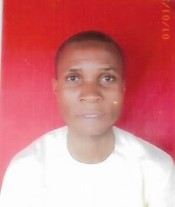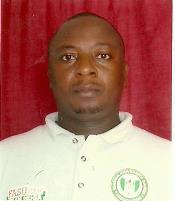in construction project delivery
FEATURED PAPER
By Godson Kelechi
Postgraduate Student
Department of Building
Benedict Amade, PhD
Senior Lecturer
Department of Project Management Technology
and
Godson Okereke
Assistant Lecturer
Department of Building
Federal University of Technology
Owerri, Nigeria
Abstract
This study investigated how e-procurement can reduce corruption in construction project delivery in Rivers State. The study followed a survey research design. We distributed one hundred and fifty-six questionnaires (156) to various professionals in both the public and private sectors, of which one hundred and twelve (112) returned and deemed valid for further analysis. The data collection and measurement instrument was a well-structured, standardised questionnaire based on Likert five-point scales and used to elicit responses from a variety of professionals. We analysed the major issues of the study using statistical tools (SPSS version 25.0) and Microsoft Excel software, which included factor analysis, mean item score (MIS), and relative importance index. According to the study’s findings, there are several factors that contribute to corrupt practices in construction project delivery, including a lack of control mechanisms, poor record documentation, monopolies, and personal greed. The study also uncovered the use of various e-procurement tools and techniques, such as an internet-based tool, a web-based enterprise resource planning tool, an e-sourcing tool, an e-tendering tool, and others, to counteract corrupt practices in construction project delivery. Furthermore, the findings reveal that measures are in place to combat corrupt practices in construction project delivery, such as the government’s commitment to open contracting, the establishment of a formal integrity framework, the implementation of construction work and process supervision throughout the project’s lifecycle, and so on. The study recommends that the government, as a matter of policy, should be organizing periodic awareness and reorientation workshops and seminars via professional association platforms through web-based portals for both the public and private sectors, and enlightening them of the dangers of factors precipitating corrupt practices in construction project delivery. There is a need to implement all e-procurement tools and techniques in both public and private companies.
Keywords: E-Procurement, Implementation, Mitigation, Corruption, Construction projects.
- Introduction
The traditional procurement system that is adopted in the Nigerian public and private sectors and deals with a normal advertisement system, a normal bidding system, and also with respect to the selection of contracts for the award process is seriously challenged with lots of setbacks and various forms of corrupt practices, which include selective tendering process challenges, the absence of control mechanisms, the absence of an efficient and effective administrative system, and the and the absence of project anti-corruption. All of these challenges necessitated procurement reform, particularly in the public sector (Ajibike, 2019; Gastor, 2019).
Using technology in areas like e-justice, e-commerce, and public procurement can reduce corruption, increase transparency, and save time and resources (Aboelazm, 2024). In general, electronic procurement encompasses all stages of the purchasing process, from demand identification to tendering, payment, and, of course, contract administration via the internet (Smith & Flanegin, 2014).
Port Harcourt, the capital of Rivers State, is one of the government sectors that has yet to adopt an electronic procurement system in Nigeria. Nonetheless, the traditional procurement system that has been practiced in Port Harcourt, the capital of Rivers State, is frequently challenged with the problems of personal greed, probity and integrity of the procurement process, accountability, transparency, kickbacks, embezzlement, fronting, conflict of interest, fraud, collusive tendering, poor legal framework, and the problem of political interference, and these problems have in one way or another drastically affected the efficiency. With respect to unravelling the issues of corruption, there is a need to implement electronic procurement in both the private and public sectors, which will ensure identifying and analysing the corrupt practices using e-procurement tools and techniques that provide a smooth process and ideas and enable project team members to meet up with the best practices in evaluating the impact of e-procurement implementation in mitigating corrupt practices to ensure probity and transparency. Previous research on e-procurement in construction focused on the strategic, opportunistic, and operational benefits of e-procurement (Eadie et al., 2010; Farzin & Nezhad, 2010); the state of e-tendering in Nigeria; and barriers to e-tendering adoption in Nigeria (Akintola and Oyediran, 2011; Bello & Iyagba, 2013). Few studies have focused on the implementation of e-procurement, particularly in Port Harcourt, the capital of Rivers State.
This study investigates the role of e-procurement in reducing corrupt practices in construction project delivery in Rivers State.
To achieve the study’s goal, the following specific objectives were developed: investigate factors that contribute to corrupt practices in construction project delivery in Rivers State; evaluate e-procurement tools and techniques used in mitigating corrupt practices in construction project delivery in Rivers State; and develop measures used in mitigating corrupt practices in construction project delivery in Rivers State.
More…
To read entire paper, click here
How to cite this paper: Kelechi, G., Amade, B., Okereke, G. (2024). Implementation of e-procurement in mitigating corrupt practices in construction project delivery; PM World Journal, Vol. XIII, Issue VI, June. Available online at https://pmworldlibrary.net/wp-content/uploads/2024/06/pmwj142-Jun2024-Kelechi-Amade-Okereke-e-procurement-in-mitigating-corrupt-practices.pdf
About the Authors

Godson Kelechi
Rivers State Nigeria
![]()
Mr. Godson Kelechi is a Teacher in Excellent Divine Favour College Egwi Etche Rivers State. He holds a Bachelor of Technology (B.Tech.) Degree in Quantity Surveying with Second Class Upper Division from the Rivers State University, PortHarcourt and Master of Science (M.Sc) in Project Management Technology from Federal University of Technology Owerri, Imo State. He is currently pursuing his Doctor of Philosophy Degree (Ph.D) in Construction Management at the Department of Building, Federal University of Technology Owerri, Imo State. Mr. Godson Kelechi can be contacted at godsonkelechi44@gmail.com

Benedict Amade, PhD
Federal University of Technology
Owerri, Nigeria
![]()
Benedict Amade is a Chartered Project Manager by Profession and a Probationer (Member) of Nigerian Institute of Quantity Surveyors (NIQS). He read and obtained a PhD (Doctor of Philosophy) Degree in Project Management Technology from the Federal University of Technology, Owerri, Nigeria. He is a member of the Project Management Institute (PMI) U.S.A. and presently a Senior Lecturer in the Department of Project Management Technology of the Federal University of Technology, Owerri, Nigeria where he has been lecturing for the past 15 years. His areas of research interest include construction project management, computer-based project management, construction supply chain management and information technology on construction projects. He has authored over 50 scientific publications in international refereed journals indexed in Scopus, Web of Science, Scimago etc. He has presented quality papers at international conferences both home and abroad. He is actively involved in other consultancy works. He can be reached at benedictamade@yahoo.com; benedictamade@futo.edu.ng; benedictamade2@gmail.com.

Godson Okereke, M.Sc
Federal University of Technology
Owerri, Nigeria
![]()
Godson Okereke is a Project Manager by Profession. He read and obtained a M.Sc (Master of Science) Degree in Project Management Technology from the Federal University of Technology, Owerri, Nigeria. He is presently an Assistant Lecturer in the Department of Building of the Federal University of Technology, Owerri, Nigeria for the past 6 years. His areas of research interest include construction project management, building project management and quality management in building projects. He is actively involved in other consultancy works. He can be reached at godson.okereke@futo.edu.ng.









